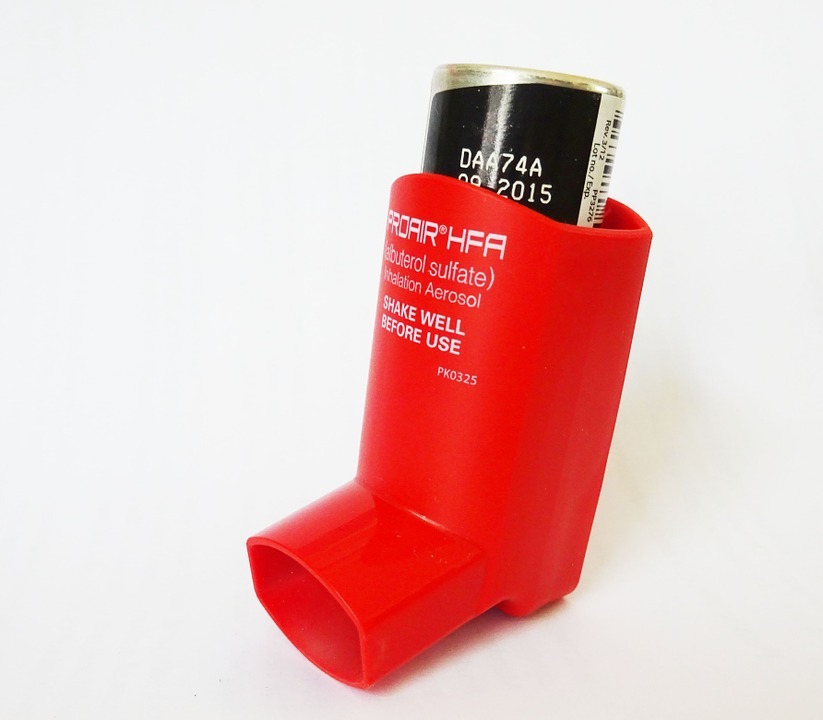Childhood asthma is often hard to diagnose. This is because dramatizations of such illnesses are often exaggerated. No one ever has a mild allergic reaction in a movie – it is always straight into anaphylactic shock with the ensuing epi-pen scene (actually a very rare occurrence), followed by an instant recovery and resumption of previous activities. Asthma is similarly ‘souped-up’ – near-death choking, great gasps for air, reddening of the face, and clutching at anyone in the vicinity indicate the onset of an attack.
In real life, symptoms, while no less life-threatening if left ignored, are much more subtle. Adults with mild asthma often present no visible signs, only becoming a little breathless under unexpected exertion. Occasionally, some sufferers can use only a preventer inhaler, which means that they do not even need to carry a reliever inhaler with them – although most will have one tucked away in a pocket or bag, just in case!
The signs of a more serious attack, while more noticeable, are still not as dramatic as Hollywood would have us believe. The sufferer may become very quiet, and their breathing may become more pronounced: deeper breaths that are close to gasps, a whistling or wheezing sound can be heard, and their faces may take on an almost greenish pallor, or go bluish around the lips. People of color are visibly affected too, with a greyish cast over their normal skin color, but this is usually not as readily noticed by those unfamiliar with the patient’s usual appearance. Often asthmatics will assume positions that they have found help to ease their breathing in the past, such as: leaning forward with their elbows on their knees to ease their back muscles, or leaning back and lifting their arms high and wide to open up their chest – as different as these poses are, they can all indicate that the asthmatic is fending off an attack. Using a reliever inhaler will usually take care of the problem, easing the airways within ten to fifteen minutes.
Children, in particular, lack the vocabulary to explain the problem, and will often describe a tight chest as a ‘sore tummy or back’ or generally ‘feeling yucky’. So how can you decide if your child’s symptoms might be asthma rather than anything else?
Physically, asthma is a narrowing of the air-pipes through which we breathe. This can be caused by extremes of cold, exposure to allergens (such as pet hair or dander, dust mites, grass seeds, air pollution, perfumes, and a host of other triggers), or by the onset of a virus.
The symptoms in a child will typically be fits of dry coughing. These fits can occur from relatively mild triggers and will worsen after or during exercise, when it is cold, or when your child has a cold or hayfever. The coughing is almost always unproductive, and they will struggle to draw breath or speak while enduring the fit.
A whistling or wheezing sound when they breathe can indicate difficulty in drawing in breaths or letting them out, and your child may seem constantly over-tired. The latter is because they are fighting to oxygenate their body – the equivalent of briskly walking up a hill at all times. They often have blocked noses or sound quite nasal as their bodies try to clear the airways. If in doubt, listen to your child’s breathing by pressing one ear to their back, over one lung and then the other. Listen for whistling, wheezing, effort in drawing breath or in exhaling – any of these are problematic.
Your child may complain of a ‘tummy ache’, sore chest, feeling ‘funny’, feeling tired, and their breathing may seem unusually deep or effortful. The child will not seem to have the energy for usual fun pursuits, even relatively static ones, preferring to nap, or lie still.
If your child has even one of these symptoms, it is worth taking them to a doctor to be examined. Asthmatic children will be especially vulnerable to colds, bronchitis, and flu viruses. Once they have a hold on an asthmatic body, these viruses will tend to linger and take time to recover from. However, childhood asthma is very easily handled, especially if it is caught early. Your child will be able to enjoy a full and active lifestyle with proper management.

